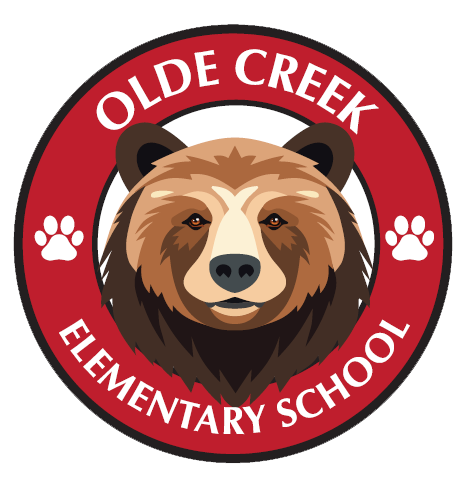Mathematics Resources and Programs
Math Websites and the FCPS Elementary Math Program
At Olde Creek, we are excited to teach our students to be mathematical thinkers in the 21st century. We approach math in a hands-on, conceptual way that allows students to meet the goals set by VDOE and Fairfax County. We realize that the way your children are learning to solve problems may look different than the way you learned how to solve problems. Encourage them to practice what they are learning in school!
Suggested Math Websites
If you have any questions or need clarification on a strategy your child is using, feel free to contact his/her teacher or email our math coach at @email.
From FCPS Website
The Fairfax County Public Schools Elementary Mathematics Program of Studies reflects the national goals and incorporates the Virginia Standards of Learning. These standards and goals provide students with the opportunity to develop the mathematical understandings needed to pursue higher education and to compete in a global, technology-intensive society. These goals include: becoming mathematical problem solvers, communicating mathematically, reasoning mathematically, and making mathematical connections.
Mathematical Problem Solving
Students will solve problem situations of varying complexities. Students will recognize and create problems from real-life data and situations within and outside mathematics and then apply appropriate strategies to find acceptable solutions. To accomplish this goal, students will need to develop a repertoire of skills and strategies for solving a variety of problem types. A major goal of the mathematics program is to help students become competent mathematical problem solvers.
Mathematical Connections
Students will relate concepts and procedures from different topics in mathematics to one another and see mathematics as an integrated field of study. Through the application of content and process skills, students will make connections between different areas of mathematics and between mathematics and other disciplines, especially science. Science and mathematics teachers and curriculum writers are encouraged to develop mathematics and science curricula that reinforce each other.
Mathematical Communication
Students will use the language of mathematics, including specialized vocabulary and symbols, to express mathematical ideas precisely. Representing, discussing, reading, writing, and listening to mathematics will help students to clarify their thinking and deepen their understanding of the mathematics being studied.
Mathematical Reasoning
Students will recognize reasoning and proof as fundamental aspects of mathematics. Students will learn and apply inductive and deductive reasoning skills to make, test, and evaluate mathematical statements and to justify steps in mathematical procedures. Students will use logical reasoning to analyze an argument and to determine whether conclusions are valid. In addition, students will learn to apply proportional and spatial reasoning and to reason from a variety of representations such as graphs, tables, and charts.
Mathematical Representations
Students will represent and describe mathematical ideas, generalizations, and relationships with a variety of methods. Students will understand that representations of mathematical ideas are an essential part of learning, doing, and communicating mathematics. Students should move easily among different representations - graphical, numerical, algebraic, verbal, and physical - and recognize that representation is both a process and a product.

